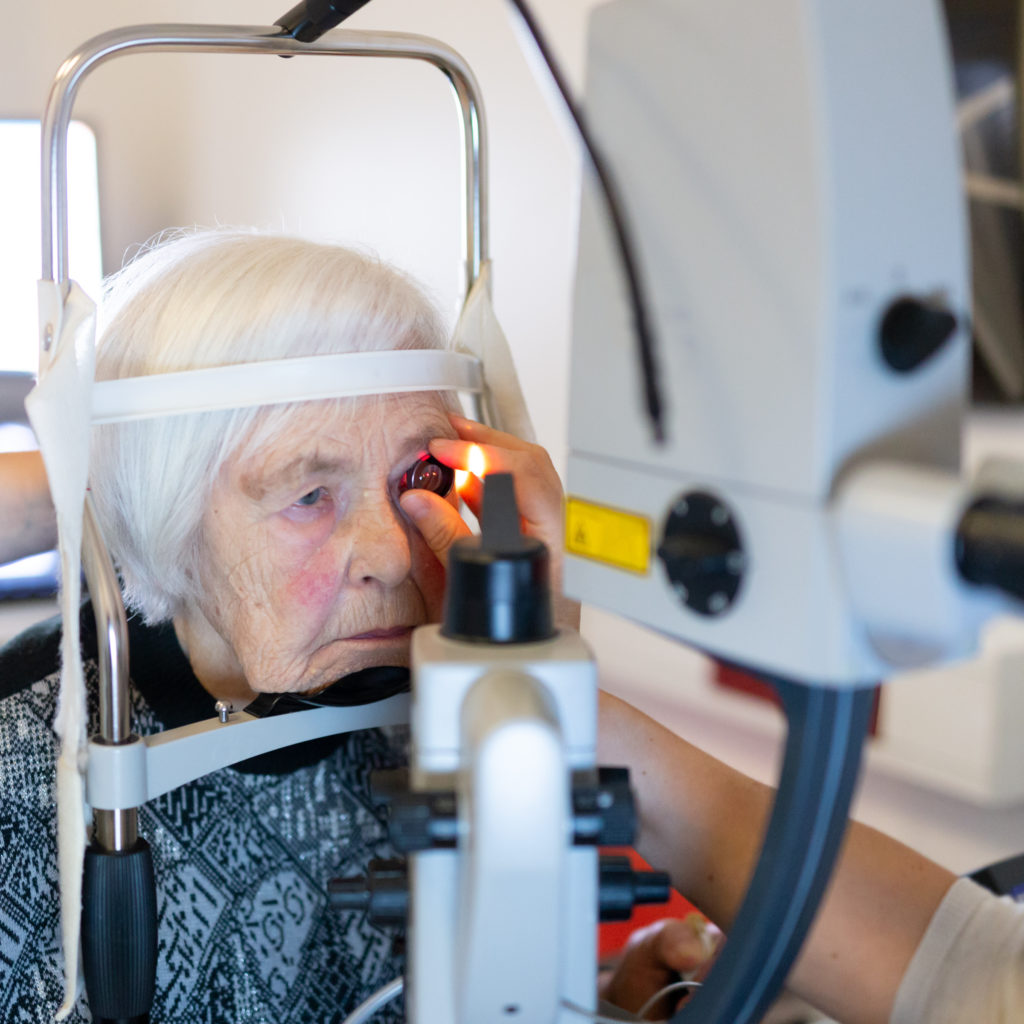Things that I learned on my optometry school rotations (that I didn’t learn in school)

The journey from third-year student, to fourth-year intern, to graduated optometrist is full of ups and downs. As much as I learned in school (and it was a lot), there are some things I only experienced once I got into my rotations. Here are a few things I learned along the way.
Tough Diagnoses
There have been a few patient cases that have stuck with me. One patient in particular had a medical history of a life-long systemic disease and that made for a very specific diagnosis and treatment plan which we created for her. Another patient had to be immediately sent to the emergency room; and the other patient was frustrated when I wouldn’t let her see the Optos picture that we took- revealing a textbook CRVO.
When I studied cases and conditions in school, I focused on the numbers, the signs, and the symptoms. If blood pressure is severely elevated, emergency care is needed. When optic nerves are swollen, a referral to neurology is warranted.
All of that studying did not prepare me for seeing those high-risk medical problems in my exam chair. I worked with my staff doctors to get the patients the care they needed, but was definitely relieved that the first time I was in a situation that required a tough conversation, I had somebody to ask for help.
Office Culture
On rotation, I went from being one of many students to being the only student. I was so nervous about starting my rotation at a new office where I had only met the staff doctors a few times, and had never met the staff at all as compared to being at school where I knew everyone.
Though this seemed daunting at the time, I shouldn’t have worried because after a few days I felt so at home with the office staff and office culture. Being the only student to work alongside the staff doctors helped me better understand everything that optometrists are doing and prescribing. I was also humbled by the technicians, optical staff, and back office as I saw them work together with the doctors to create the best patient care and flow.
Living Alone
My rotation was the first time I had ever lived completely alone. Until that point, I had lived with my family or with roommates. Living alone was a major adjustment, with the end of a long day being the hardest, as there was nobody at home to bother and talk to.
Living alone requires that you go outside of the apartment and office for social interaction, which was definitely a change from optometry school, where I was around people all day. I joined a gym and made friends with the people there, and I kept in touch with friends and family. Thought, to be honest, I still jump when I hear a bump in the middle of the night.
Preparing for boards
In school, I was surrounded by my classmates and  roommates when it came to studying for exams and boards. However, during my fall rotation that was not the case, as Part 2 of boards was in December which was near the end of my fall rotation. I had to use my willpower and motivation to study, which was definitely a challenge after long days of clinic. I kept in touch with friends and followed a study plan the same way I had for Part 1, and am expecting a PASS this spring.
roommates when it came to studying for exams and boards. However, during my fall rotation that was not the case, as Part 2 of boards was in December which was near the end of my fall rotation. I had to use my willpower and motivation to study, which was definitely a challenge after long days of clinic. I kept in touch with friends and followed a study plan the same way I had for Part 1, and am expecting a PASS this spring.
Relying on my instincts
My staff doctors wanted an assessment and plan for each patient when I presented my case, and because of my increased experience they gave me more autonomy than I had at the school. I saw different types of pathology at my rotation than what I had seen in optometry school, and I had to figure out what all the signs and symptoms meant. Was that really a dot blot heme on the photos, or was it dust on the lens? Is now the time to begin treatment on the patient who was a glaucoma suspect? Are those cataracts ready for surgery referral?
It came down to trusting myself and believing in my findings. If I saw something, it was probably there and up to me to figure out what to do next. It made me more confident in my skills, interpretation, and judgment when it came to making the call for diagnoses.
Preparing for the future
Rotating through a private practice gave me true insight into the business of optometry. While the practice management classes I took were greatly informative and helpful, those classes did not show the true, day to day insights that come with being in an optometry practice. I was able to work with my staff doctors to learn about frame inventory, contact lens sales, vendor relations, lens companies, insurance companies, and front-desk operations. I plan to be part of private practice in my career, and learning the steps involved now gave me a full understanding of all the risks and benefits involved.
Doctor-Level Involvement
What does being involved mean after optometry school? A whole lot, according to the doctors I worked with. Two of the doctors that I worked with were former state presidents and had immeasurable awards between them. During my rotation, I was able to attend the state meeting and get involved in office and community events. One highlight was speaking to a Congressman about optometry legislation at a Kiwanis club meeting. There are ways to be involved after optometry school, no matter what aspect of optometry you are interested in.

